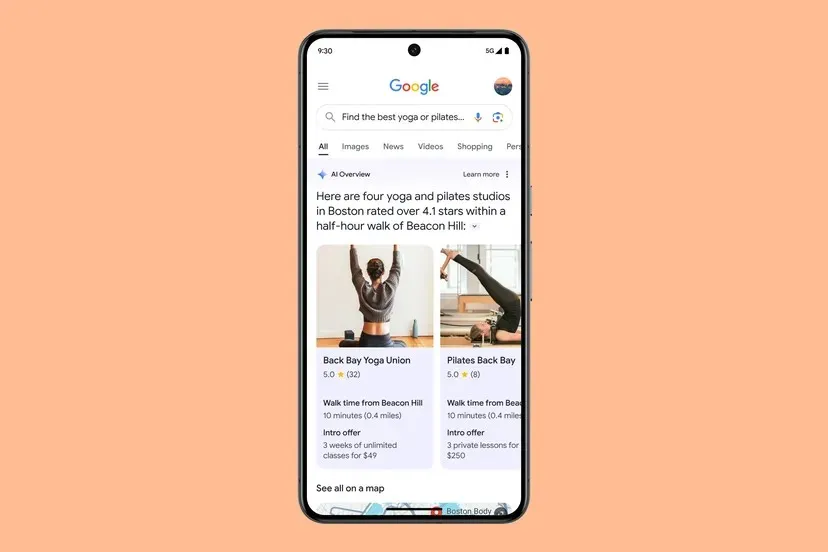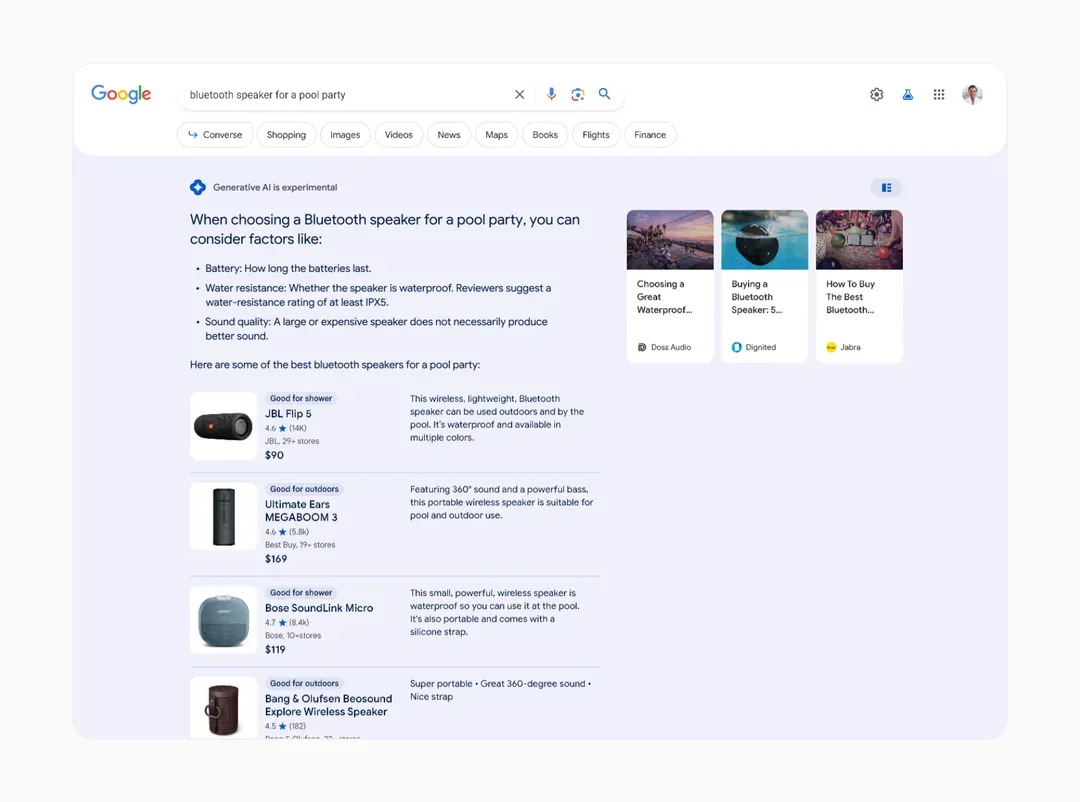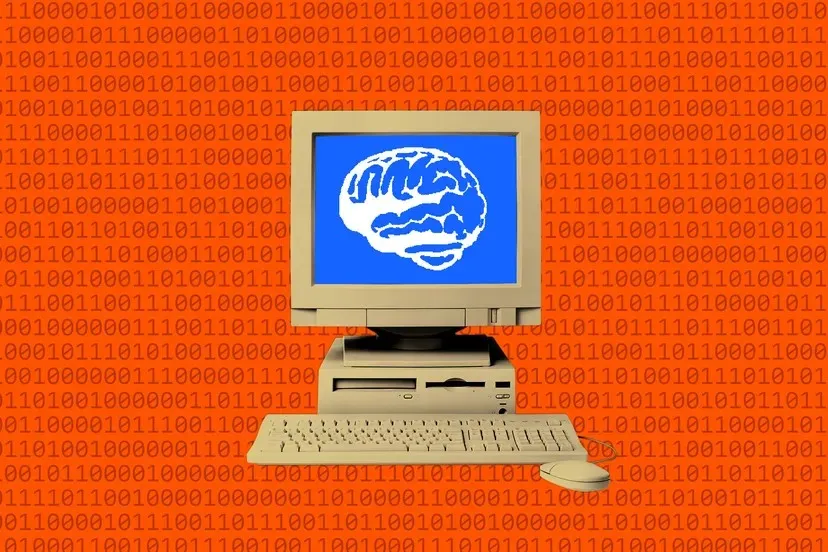Google Search's future is AI, and it's here. AI Overviews, Google's new and refined way of searching holds promising features, and only a tip of the announced features has been rolled out, but now the company is scrambling to manually remove weird AI search results.

Google announced AI Overviews in this year's I/O Keynote two weeks ago, "promising" interesting features that could potentially ramp up search results and presenting them in a succinct yet informative manner. Previously called Search Generative Experience—a mouthful, I know—it has been in the works for a year now, since May 2023. And its fundamental purpose is to simplify answers to searches into compact, dense, and useful responses.
You could just type in "bluetooth speaker for a pool party" and find AI Overviews provide you with far more interesting results than a couple of links related to your search, for example.

It is indeed an exciting way forward with Google searches, but there have been rather unexpected results from Google AI Overviews lately, as well as reactions from people that "do not want it."
Weird Answers from AI Overviews
AI Overviews has been reported by a few users that it's asking them to put glue in their pizza, suggesting to some others to eat rocks, advising people to stare at the sun for varying minutes depending on skin colour, and sometimes providing answers that are outdated.
Apparently, Google AI Overviews "learned" from an eleven-year-old Reddit post that "To get the cheese to stick, mixing about 1/8 cup of Elmer's glue in with the sauce will give the sauce a little extra tackiness and solve the issues with the cheese sliding, and that it'll add a little unique flavor." Clearly, it was a joke.
https://x.com/kurtopsahl/status/1793494822436917295?ref=404media.co
You may not be able to reproduce such results now, as "Google is taking swift action to remove innacurate results," a company spokesperson says in a statement, and is "using these examples to develop broader improvements in Google's systems."
“The vast majority of AI Overviews provide high-quality information, with links to dig deeper on the web,” the spokesperson said. “Many of the examples we’ve seen have been uncommon queries, and we’ve also seen examples that were doctored or that we couldn’t reproduce. We conducted extensive testing before launching this new experience, and as with other features we’ve launched in Search, we appreciate the feedback.” TechCruch
What are AI Overviews even for?
Taking a different perspective on Google AI Overviews, it is clear what these new features are going to take away from people—users, creators, and developers. And, looking a little deeper, one would wonder what these overviews are actually for and if they are truly better than the regular web search that we've all been used to.
In most practical cases, you would want to actually do your own research, as just a few lines and sentences of summary will not cut it and may not even be accurate as AI is still very well known to hallucinate sometimes. The first thing you'd see for your search on Google are the AI Overviews, which take up a whole lot of space and push the regular and useful blue links that you'd normally "surf" through to get what you're looking for. That can be annoying.
The AI Overviews are to reduce the clicking of links that you have to do to get information. Essentially, that reduces the traffic that webpublishers need on their website - that the AI even makes the overviews from. A good thing that Google AI Overviews does is that it provides links to the sources of the information it gives, but that really is a whole set of link-clicking to get around those sources for more insights and fact-checking, which kind of nullifies what the overviews are for in the first place.

Researching and the like aside, AI Overviews still stands strong with its potential to make some other daily things much easier, like planning trips and figuring out the best restaurants for dinner or business meetings, and those kinds of things.
Large language models aren't close to human intelligence.
AI is pretty intelligent. It's only the dawn of AI, and we have been able to attain tremendous, mind-blowing feats so far, especially in 2024. However, these AI companies are "selling dreams" that this particular technology will go from 80 percent correct to 100 percent, Gary Marcus, an AI expert and emeritus professor of neural science at New York, says.

"Achieving the initial 80 percent is relatively straightforward since it involves approximating a large amount of human data," Marcus said, "but the final 20 percent is extremely challenging." Marcus even thinks that the last 20 percent might be the hardest of all.
“You actually need to do some reasoning to decide: is this thing plausible? Is this source legitimate? You have to do things like a human fact checker might do, that actually might require artificial general intelligence,” Marcus continued. Source
We will continue to see more of these issues with AI, as long as it is not as intelligent as we humans. They are generally unable to check their own work and determine what is actually reasonable or plausible.
AI Overviews will be better, Google says
"People are visiting a greater diversity of websites for help with more complex questions. The links included in AI Overviews get more clicks than if the page had appeared as a traditional web listing for that query." Google says.
And with the idea that Google is working and improving on AI Overviews, we can only hope that their statements are true and that they can truly be a boon.
